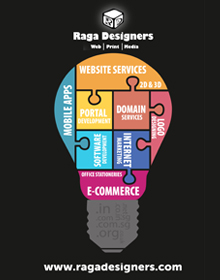This article is licensed under a Creative Commons Attribution-NonCommercial-NoDerivs 4.0 International license. Intensive therapy & support for those who do not require 24/7 hospitalization. Your primary care provider can refer you to a therapist, but you can also try directories, such as this one through Psychology Today. Drinking can seem like an easy way to cope with difficult emotions in the moment, but it’s generally not effective in the long run. You might feel a little unwell physically, but as long as the room doesn’t spin when you stand up, try to get outside for a short walk — or a longer one, if you can manage it.
Intensifies Physical Fatigue
By understanding the cycle and seeking appropriate help, individuals can find hope and take steps toward a healthier and happier future. Furthermore, the presence of other mental health disorders, such as anxiety or post-traumatic stress disorder (PTSD), can increase the likelihood of experiencing both alcoholism and depression. These co-occurring disorders can interact and exacerbate symptoms, making it more challenging to treat and manage these conditions effectively. Enrollment in a residential treatment program, also known as inpatient rehab, like the one at Clear Behavioral Health, may be beneficial in addressing depression and substance abuse issues simultaneously. These programs provide intensive care and support in a structured environment, offering a combination of therapy, medical monitoring, and holistic interventions designed to address both depression and alcohol use disorders. Addressing every struggle, including depression, alcohol use disorder, and any other mental illness concurrently, is essential for effective treatment.
Environmental and Psychological Factors
However, the risk of developing one condition increases the vulnerability to the Substance abuse other due to the complex interplay of genetic, biological, environmental, and psychological factors. To grasp the link between alcoholism and depression, it is important to have a clear understanding of what alcoholism and depression entail. This section will delve into the definitions of alcoholism and depression, as well as shed light on the prevalence of these conditions. If you drink regularly to manage depression symptoms, it may have be beneficial to work with a therapist who specializes in treating co-occurring depression and alcohol use.
Alcohol may cause or worsen depression
Due to the high prevalence of concurrent AUD and depression, it is important to know the signs and symptoms of both disorders so addiction treatment can be sought as soon as possible. Many who struggle with alcohol use disorder (AUD), commonly known as alcohol addiction, may also find themselves struggling with co-occurring mental health disorders. It is characterized by feelings of intense sadness and can last for months or even years. Luckily, effective dual diagnosis treatment for AUD and depression exists and can help one achieve and maintain recovery. Understanding what depression is, how it interacts with substance use, and how to find dual diagnosis treatment can help you begin your journey to recovery. These disorders are characterized by disrupted mood (e.g., low, numb, or irritable), along with an array of cognitive (e.g., feelings of worthlessness and difficulty concentrating) and physical (e.g., fatigue and lack of energy) symptoms.
High levels of depression are especially worthy of concern, because the risk of death by suicide among alcoholics, estimated to be 10 percent or higher, may be most acute during these depressed states. Both alcohol abuse and depression can relapse, which makes ongoing support essential. Aftercare may include relapse prevention plans, continued therapy, peer groups, and regular medical check-ins. Once the initial buzz fades, stress hormones return and hit harder, amplifying feelings of sadness, hopelessness, or fatigue.
Follow us on social media
This is why learning about the connection between alcohol and depression is essential. Sandra Lamb is a freelance science and health care journalist and author of books including How to Write It and Writing Well for Business Success. Fehling recommends that family and friends of heavy drinkers “build a cohesive message” and unite. Depending on your situation, it may be wise to locate and be in touch with a treatment center in case one is needed immediately. Support groups like Adult Children of Alcoholics and Al-Anon can also be helpful, Fehling says. Commitment to discussions can reduce the chances of engaging in high-risk behaviors and encourage individuals to push forward in the sobriety process.
Binge drinking, in particular, has been strongly linked to depressive episodes, further complicating the relationship between these two conditions. In many https://singamas888.net/3-things-that-happen-when-you-stop-drinking/ cases, individuals may wonder, can depression cause alcohol abuse? The cycle of using alcohol to cope with emotional distress often leads to deeper dependency, making professional intervention essential for long-term recovery.
- Clear Behavioral Health also offers continuing care to your treatment providers and recovery community with aftercare programs, allowing you to stay connected and supported in your journey toward sustained recovery and better health.
- The research needs more representation of women to increase understanding of the sex differences and to better characterize the mechanisms underlying women’s heightened vulnerability for depressive disorders.
- Dopamine produces positive emotions that make you feel good and help reinforce your desire to drink, but alcohol affects your central nervous system in other ways, too.
- Many people have been where you are and have successfully treated their depression and alcohol use disorder.
- Integrated therapy approaches that target both alcohol and depression conditions, such as cognitive-behavioral therapy (CBT) or medications for depression alongside therapy and support for alcohol use disorder, can be particularly beneficial.
However, research does not unanimously support the prior existence of severe depressive or anxiety disorders as a usual cause of alcoholism. Psychological symptoms may carry a worse prognosis for alcohol-related problems, and these symptoms must be addressed early in alcoholism treatment. Alcohol dependence has been shown to be genetically influenced and to run in families (Schuckit and Smith 1996). The disorder often develops when individuals are in either their twenties or thirties. Similarly, major anxiety disorders usually are apparent before age 30, and although major depressive disorders often have a later onset, they too are frequently observed before age 30.
Does Depression Drive You to Drink Alcohol?
However, alleviating depression does not resolve the alcohol use disorder. In some cases, you may receive a dual diagnosis of a major depressive disorder (MDD) and an alcohol use disorder (AUD). This co-occurring disorder isn’t uncommon, but it can be difficult to treat. If you’re being treated for both depression and alcohol abuse at the same time, however, you should be careful about combining antidepressants and alcohol. Alcohol can also worsen the side effects of antidepressants, which include dizziness, drowsiness, insomnia, blurred vision, headaches, and more. The relationship between alcohol and depression is bidirectional, with each condition exacerbating the other.
- Most healthcare providers prescribe naltrexone orally, though it is also available as a monthly injection administered intramuscularly.
- In some cases, if you are physically dependent on alcohol it can be harmful to stop suddenly.
- That might mean detoxing from alcohol in a safe environment and then working with a therapist to explore the root causes of depression.
- Additionally, residential treatment can be helpful for someone who needs help detoxing, has an unsafe home life, or is severely addicted.
Understanding Alcoholism and Depression
- This method of treatment will be coupled with customised psychological interventions, such as CBT, to manage negative thought patterns and emotional triggers, along with drugs such as antidepressants and naltrexone for alcohol use disorder.
- However, the risk of developing one condition increases the vulnerability to the other due to the complex interplay of genetic, biological, environmental, and psychological factors.
- It showed that CBT-D had shown significant improvement in depressive symptoms at the beginning of treatment; however, the improvement was non-significantly different after following up 21.
- Additionally, articles published within Cureus should not be deemed a suitable substitute for the advice of a qualified health care professional.
- Sign up for free and stay up to date on research advancements, health tips, current health topics, and expertise on managing health.
One, hence needs to understand the interlink so that an effective treatment plan can be framed, thereby enhancing recovery results. The objective of the study was to determine comorbid depression among 188 Alcohol Use Disorder Identification Test (AUDIT) 48 positive participants. The data is part of that collected in a six-month prospective study done to determine the cost-effectiveness of community-based and institution-based detoxification and rehabilitation of alcohol-dependent persons.
In this section, we will explore how alcoholism can be a risk factor for depression, how depression can increase the risk of alcoholism, and how these factors contribute to the vicious cycle that individuals may find themselves in. Understanding these contributing factors provides insight into the complex relationship between alcoholism and depression. Co-occurring disorders can complicate treatment and recovery efforts as they often interact and influence each other. For example, alcohol use can worsen depressive alcohol and depression symptoms, while depression can increase the risk of alcohol relapse. It is essential to address both conditions simultaneously to achieve successful outcomes.







No Comment